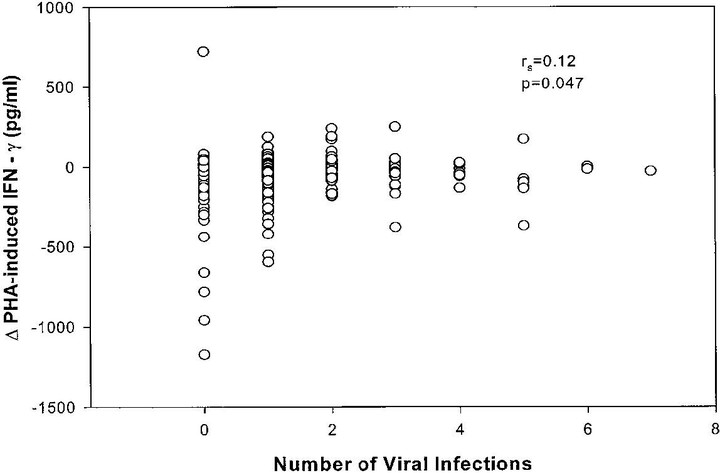Cytokine response patterns, exposure to viruses, and respiratory infections in the first year of life

Abstract
Daycare attendance and siblings are associated with viral-induced wheezing in children. Preexisting immunologic factors may influence the expression of viral infections in infancy, and in turn, recurrent infections may influence the development of immune responses. A total of 285 children were enrolled in the Childhood Origins of Asthma Project at birth and followed for at least 1 year. Cord blood and 1-year mononuclear cells were stimulated with phytohemagglutinin, and cytokine-response profiles were measured by enzyme-linked immunosorbent assay. Nasal lavage was performed for moderate to severe respiratory illnesses. Daycare attendance and/or siblings significantly increased the likelihood of contracting respiratory syncytial virus (1.5-1.6-fold increase) and rhinovirus (1.8-2.1-fold increase), and increased the risk of rhinovirus-induced wheezing (14-18% vs. 2%, p = 0.011). Cord blood IFN-gamma responses were inversely related to the frequency of viral respiratory infections (r(s) = -0.11, p = 0.05), and more significant for subjects with high exposure to other children (r(s) = -0.27, p = 0.028). The interval change in infantile IFN-gamma responses correlated positively with the frequency of viral infections in infancy (r(s) = 0.12, p = 0.047). These data suggest that neonatal IFN-gamma responses may influence antiviral activity, or may represent a marker of antiviral immunity maturation. Conversely, the frequency of viral infections in infancy can influence IFN-gamma responses.